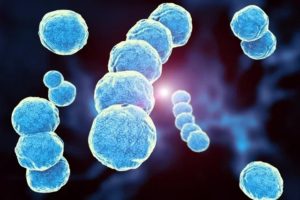CONTACT
We will reply as soon as possible.
Enevia Health, LLC
30 N Gould Ste N, Sheridan, WY 82801, USA
Font: Post-infectious inflammation, autoimmunity, and OCD
Postinfectious neuroinflammation has been implicated in multiple models of obsessive-compulsive disorder (OCD), such as Sydenham chorea (SC), pediatric acute-onset neuropsychiatric syndrome (PANS), and pediatric autoimmune neuropsychiatric disorders associated with streptococcal infections (PANDAS).
These disorders are associated with a series of autoantibodies that are believed to be triggered by infections, especially group A streptococcus (GAS).
Based on animal models using human sera, it is believed that These autoantibodies cross-react with neuronal antigens from the basal ganglia. and modulate neuronal activity and behavior.

As with many childhood neuroinflammatory and rheumatological diseases, SC, PANS and PANDAS lack rigorous and clinically available diagnostic biomarkers, as well as randomized clinical trials.
In this review article, We describe the accumulated evidence supporting the role that neuroinflammation plays in these disorders. Work with animal models, including patient-derived antineuronal antibodies, is described, and imaging studies showing alterations in the basal ganglia are outlined.
In addition, research was presented on metabolites, which are useful for deciphering functional phenotypes, and on the involvement of sleep in these disorders.
The objective of this study is to analyze the effects of neurodegenerative diseases (for example, pediatrics, psychiatry, rheumatology, immunology and infectious diseases) in the investigation of clinical syndromes that present with neuropsychiatric manifestations.
For many years it has been recognized that post-infectious neuroinflammation can manifest as obsessive-compulsive disorder (OCD), and the evidence for this relationship continues to mount. OCD was described in Sydenham Korea (SC) more than 3 centuries ago and ended up being related to a post-streptococcal inflammatory process.
More recently, with the description in 1998 of Pediatric Autoimmune Neuropsychiatric Disorders Associated with Streptococcal Infections (PANDAS), post-infectious neuroinflammatory pathways have been implicated in acute-onset OCD in children.
The more general term Pediatric Acute-Onset Neuropsychiatric Syndrome (PANS) followed, to describe cases that share symptoms with PANDAS (e.g., acute-onset OCD, other acute-onset neuropsychiatric symptoms), as well as evidence of an inflammatory pathophysiology, but whose specific trigger may or may not be GAS infection.
This article reviews research relevant to the relationship between OCD and immune dysregulation in the contexts of CS, PANDAS, and PANS, and discusses possible extensions of this model to other conditions that manifest with OCD symptoms.
Because SC provides a widely accepted model of postinfectious autoimmunity leading to neuropsychiatric symptoms, we began testing this model.
Parallel evidence was reviewed in PANDAS/PANS and, where appropriate, in other disorders with overlapping symptoms (e.g., Sydenham chorea: A well-established neuroinflammatory disease presenting with OCD symptomatology Sydenham chorea (SC) is a poststreptococcal neurological manifestation of acute rheumatic fever (ARF) that involves marked behavioral changes and involuntary movements approximately 25% of acute rheumatic fever cases manifest these symptoms.
Among patients diagnosed with CS, even 80% presents obsessive-compulsive symptoms, along with other neuropsychiatric symptoms such as restlessness, irritability, emotional lability, distractibility, anxiety, night terrors, and outbursts of inappropriate and/or violent behavior.
Although considered rare in North America and Europe, CS continues to occur in places where streptococcal infections are common untreated, with a mean age of onset of between 9 years.

However, the recommended treatment for moderate to severe cases of CS includes immunomodulation, which has been shown to be effective in the treatment of neuropsychiatric symptoms.
It is believed that CS is the result of an autoimmune process induced by GAS infection. in which the basal ganglia-thalamo-cortical (BTCG) circuits are altered by cross-reactive antibodies through the process of molecular mimicry.
The antineuronal antibodies against dopaminergic receptors (D1R and D2R), tubulin (the primary microtubule protein) and lysoganglioside (ganglioside-monosialic acid [GM1]) are elevated in patients with CS compared with controls and in a study of patients with CS, autoantibody titers against dopamine receptors were correlated with symptom severity.
Sera and cerebrospinal fluid from CS patients have also been shown to induce the activation of CaM kinase II, a protein kinase involved in neuronal plasticity and memory that is a downstream component of dopamine and other neurotransmitters.
Animal models and neuroimaging studies of CS suggest that these autoimmune processes especially affect the basal ganglia. Dopaminergic neurons in the substantia nigra and ventral tegmental area of the basal ganglia were observed to be targeted in a strain of transgenic mice.
In humans, multiple MRI analyzes have revealed abnormal T1 and T2 signals in the basal ganglia of subjects with CS, and persistent MRI abnormalities have been reported, including changes in the caudate nucleus, in patients presenting with recurrent episodes of CS, reflecting the possible effects of autoimmune inflammation. Studies that have not found significant volumetric differences have included subjects in various stages of the disease.
In many inflammatory diseases, Initial inflammatory episodes are associated with acute swelling, while atrophy is observed in later phases.; therefore, grouping samples at different stages of the disease may obscure the results.
While in some cases normal perfusion is observed on SPECT, in others hypoperfusion is observed; As in volumetric studies, these heterogeneous results likely reflect differences in the mean disease stage/phase of the cohorts.
If you want to know more about it, we invite you to visit our other articles, as well as the tests that could help you diagnose different pathologies and make the best decisions, through: https://eneviahealth.com
We will reply as soon as possible.
30 N Gould Ste N, Sheridan, WY 82801, USA
Our groups are the ideal platform to learn and share your scientific concerns about neurodevelopment issues
*Our purpose is informational only, it is not intended to be a substitute for medical advice, diagnosis or treatment.
We are working on our website. For any queries, you can contact our customer service team at atencionalcliente@eneviahealth.com